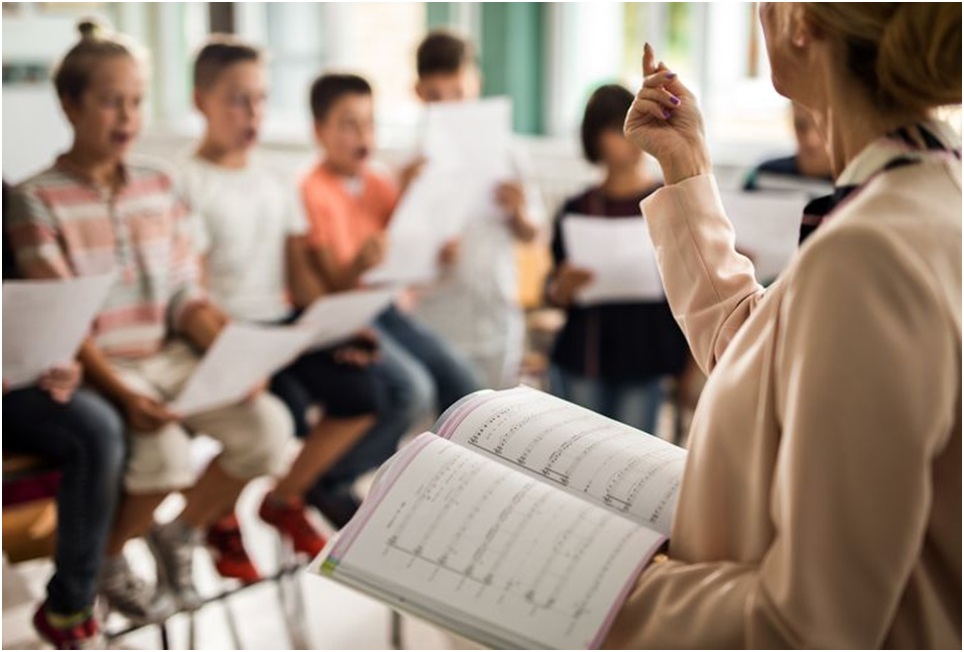
Singing and music play an important role in our culture. You will find music in many aspects of our lives: plays, television, movies, liturgies, festivals, celebrations, government and military ceremonies. At home, music can become a part of our family culture, a natural part of our daily life.
From birth, parents instinctively use music to comfort and comfort their children, to express love and joy, to participate and interact. Parents can build on these natural instincts by learning how music affects children’s development, improves social skills, and benefits children of all ages.
Bumblebee not only provides music classes for kids Melbourne , but also arts training. We have physical class in Melbourne and also offer online class via online software.
Music and the Brain: The Benefits of Music
A 2016 study from the Brain and Creativity Institute at the University of Southern California found that musical experiences in childhood can actually accelerate brain development, especially in language acquisition and reading skills. According to the National Music Merchants Association Foundation (NAMM Foundation), learning to play an instrument can improve math learning and even improve SAT scores.
But academic achievement is not the only benefit of music education and exposure. Music stimulates all aspects of a child’s development and skills, including intelligence, social emotions, movement, language and overall literacy. It helps the body and brain work together. Exposing children to music during their early development can help them learn the sounds and meanings of words. Dancing to music helps children develop their motor skills and also allows them to practice self-expression. For children and adults, music helps to enhance memory.
In addition to the developmental benefits, to put it simply: music brings us happiness. Imagine listening to a beautiful song in your car with the window open on a beautiful day. This is happiness.
Music games are suitable for children of all ages
Children of all ages express themselves through music. Even small babies will sway, bounce or move their hands to the music. Many pre-schoolers make up their own songs and talk to themselves while playing. Children learn to sing together in elementary school and may learn to play a musical instrument. Older children dance to the music of their favorited bands and use the music to build friendships and share feelings. Try these activities and games with your child to experience the joy and learning that music brings.
Babies and Music
Babies can recognize the melody of a song before they understand the lyrics. Quiet background music can soothe a kid, especially during sleep. Loud background music can overstimulate the kids by raising the level of noise in the room. Sing simple, short songs to the kids. While you’re at it, try writing a line or two about bathing, dressing, or eating to them. Find more music learning activities for babies.
Kids’ musical activity
At Wellesley’s Bright Vision Nursery there is a musical activity involving different instruments and singing in English and Spanish. Visit our Wellesley, Massachusetts, child care website.
Kids and Music: Kids like to dance to music. The key to young children’s music is repetition, which promotes language and memory. Silly songs make a toddler laugh. Try singing a familiar song and insert a silly word into the correct words, such as “Mary had a little spider” instead of “lamb”. Have the child recreate the rhythm by clapping or striking objects.
Pre-schoolers and Music: Pre-schoolers love to sing just to sing. They don’t care about their abilities. Most of us want to make our voices roar. They like songs that repeat lyrics and melodies, use clear beats and rhythms, and ask them to do things. Pre-schoolers enjoy nursery rhymes and songs about familiar things, such as toys, animals, play activities and people. They also like finger-playing and meaningless rhymes without musical accompaniment.
School-age children and Music: Most school-age children are interested in songs that children sing that involve counting, spelling, or memorizing a series of events. School-age children begin to express their likes and dislikes for different types of music. They may show an interest in music education, such as children’s music lessons.
Teens and Music: Teens may use musical experiences to form friendships that separate them from their parents and young children. After school, they often want to go out with a group of friends to play and listen to music. Remember the days of basement and garage bands? Teenagers usually have a strong interest in taking music lessons or joining a band.
Whether they play an instrument or simply listen to music for their own enjoyment, it can have a profound impact on your child’s life. While your child will benefit from it in many different ways, the sheer happiness they might get from it is reason enough to introduce it to them at a young age.
If you have a long distance from our centre, you can register your kid with our online music class. We offer a wide range of instrument class and notice the change in his/her development and personality.



